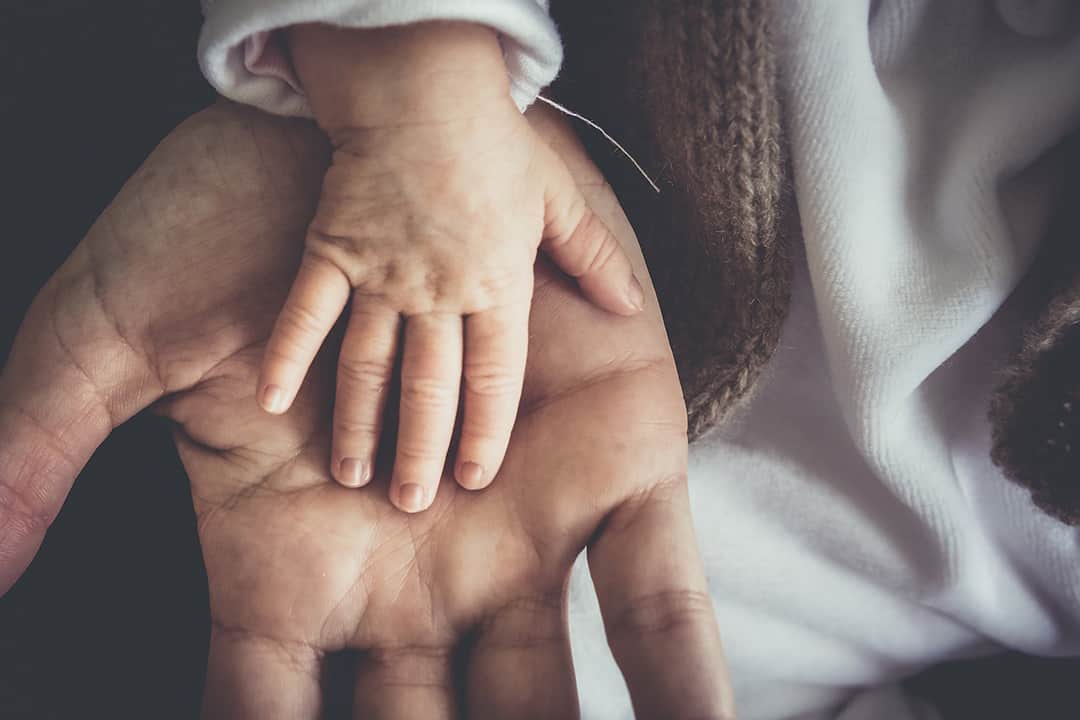There is probably no greater question that is either dreaded or answered with excitement for newly married couples – “when are you having a baby?”. It’s not exactly the kind of conversation you want to have with your in law’s next-door neighbour when you haven’t even had the chance to get used to married life let alone your birthing plan.
For some couples, they have it all sorted and planned, travelling and growing up for 2 years, then comes the family, for others a house needs to be set up first, and for some it’s straight away. All of these choices are equally okay, but perhaps not for the couples that don’t have a choice.
Infertility.
It affects 15% of couples of reproductive age today, and it can be a long, and exhausting experience, internally and externally. Infertility is something that calls a man’s manliness and a woman’s womanness into question. More often than not, women are being told that they are not achieving their full female capacity if they don’t have a child, and how can a man have a wife that will not allow his lineage to carry on, and what legacy will he be leaving behind?
Infertility is sometimes seen as a curse in particular communities, which is why it’s important to leave behind the myths, and the superstitions and fully accept the decree of Allah. We’ll go into that soon, for now, let’s have a think about the chaos that goes on for a woman that wants to become a mother but simply can’t. A woman that wants to grow a human inside of her body, a woman that wants to experience the same pain of Maryam RA that was worthy of being mentioned in the Quran, a woman that wants practice patience, and become a backbone of her home. The turmoil that consumes her is immense. Trying to fulfil her natural abilities can lead to feelings of insecurity, filled with guilt of not being able to conceive, anxiety ridden due to the incessant thoughts of infertility, low self worth because of not being able to be fully woman, frustrated, ashamed and socially isolated because perhaps her main support network is made up of pregnant women or mothers. This is on top of the already existing pressure of wider expectations and pressures, with constant reminders of the “ticking clock”, and her heart only continues to break with every period and every negative test.
Infertility can also lead to a huge strain in a marriage with decreased intimacy, combined frustration, lack of support and simply having nowhere to go and express your feelings. We must not forget that infertility can emotionally distress husbands too, especially if it is combined infertility or isolated male infertility.

Pregnancy is something so highly celebrated, and parenthood is something so highly praised – motherhood especially, is something so unique, and sacred and has such special moments that not even the father can experience. It’s also given such a high status in Islam, so watching families grow around you, hearing of yet another friend or relative to be expecting their 1st, 2nd, 5th, or 7th child can be a painful experience and lead to the loss of hope.

In times like this, it’s important to remember that miracles have happened before and can happen again. Take Sara (RA) the wife of Ibrahim (AS) who was barren for example, she even told her husband to get married again so that he can have a child. It wasn’t Ibrahim (AS) who was harsh to her, or remanded her and their bond remained strong despite their inability to conceive but they had full faith in Allah and He gifted them Yaqub (AS)[11:71-73]. Another beautiful example of Zakariyya (AS), who asked Allah for offspring and He gave him the glad tidings of Yahya (AS) despite his wife also being barren [3:38-40]. However, if a miracle is not destined for you, then it is important to wholly accept that, Allah renders who He wills to be barren [42:50] and although it may be difficult, we cannot question Allah and His abilities, because He could have better planned for you. Let’s not forget that majority of the Mothers of the Believers did not have children with the Prophet (SAW) and yet we have Aisha (RA) who is one of the most famous scholars in Islam and was responsible for educating those who laid the foundations of Islam to spread all over the world. Who knows what Allah has planned for you? You could take this as an opportunity to further your Islamic education and working purely for the sake of Allah, as well as take up new hobbies, and even consider working with children to try and compensate.

A lot of backward thinking in our communities will lead to many couples not seeking medical advice because “having a baby is Allah’s will and should be natural”, however there is nothing wrong with finding out of your options as long as they are in accordance to the Quran and Sunnah. We firmly suggest doing your own research for a full Islamic and Medical perspective on other methods of conceiving. Furthermore, there are ample natural ways to boost your fertility such as attaining a healthy weight, eating foods rich in anti-oxidants, cutting out caffeine, increasing iron intake, eating protein from more vegetable sources, and reducing refined carbs and more.
If you need more information or support, joining social media support groups are a fantastic way to get real experiences and advice, as well as being completely transparent with your GP, you could also visit these websites for more information.
https://www.nhs.uk/conditions/infertility
http://fertilitynetworkuk.org
Have you had experiences of infertility? Would you be comfortable telling us how it affected your mental health?





as salaam alaykum, thank you for writing this piece. I am someone who suffers from infertility and I can not even describe the stress, pain and hurt this caused me.
The title says it all, the longing…I cannot remember a time when I have not thought of being a mother. Throughout my marriages, treatments and subsequent divorce, all I wanted to be is a mother.
I feel there is a lot pressure to have child and some define womanhood with being a mother and that’s it.
I wish when I was going through this I took up counseling as I feel it may have helped me with my grief
Wasalaam sister,
Thank you for your message and I am truly sorry to hear about your struggles may Allah SWT grant you ease.
I think that you are right that motherhood is one area that many have an opinion on and as a community we do need to practice more sensitivity.
It sounds like you have amazing strength mashallah and it’s never too late to seek that counselling so if you do feel it’s something that still causes you difficulty you might want to try counselling as a way to explore those feelings and come to peace with them.
If we can help in any way please do fill in the form on the Get Help page, you are not alone.
Mashallah great article. I work in women’s health. My best friend has suffered infertility for 12 yrs. I love her so much Mashallah and I know how hard it is for women and their families.
Umm Amin, DNP, CNM
Salam and Jazakallah khair for your kind comments. May Allah SWT reward you for the important work that you do and your love for your friend, may Allah SWT make it easy for her. Ameen.